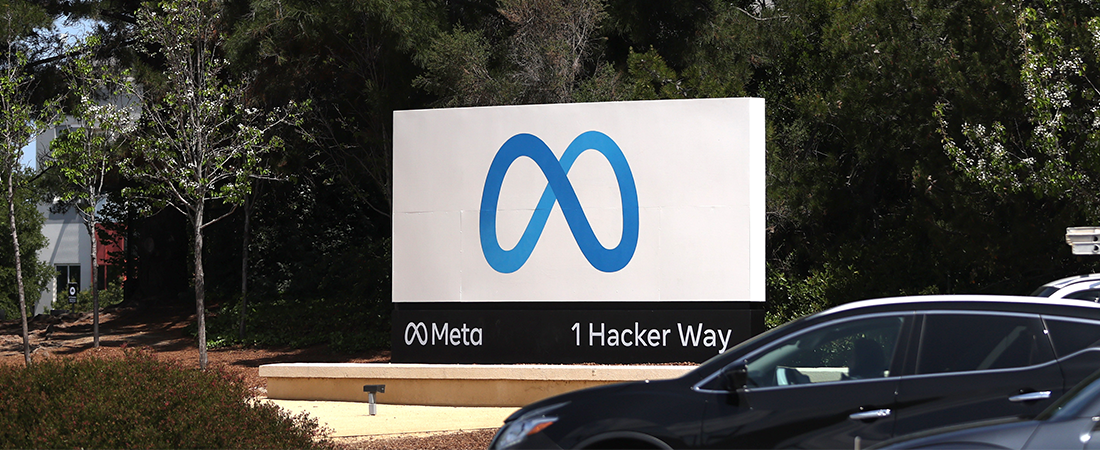Competition has been thrust ever further into the spotlight in recent weeks, with important consequences for businesses, organisations and competition lawyers alike.
Portland’s Litigation and Disputes consultants walk you through those changes, including the potential communications considerations for legal advisors to be aware of.
1 Competition class action against Meta gets knocked back by the courts
The UK’s Competition Appeal Tribunal (CAT) has refused to certify the high-profile abuse of dominance class action against Facebook’s parent company, Meta. The class action aimed to represent users on an ‘opt-out’ basis, meaning those affected would not need to actively sign up and join the claim.
The case is seeking more than £2 billion in damages from Meta for 45 million UK consumers for breaking competition law. Meta is accused of requiring Facebook users to hand over their personal data before being allowed access to the platform, and of not paying Facebook users for Meta’s access to their data, despite this data being monetised for targeted adverts.
The CAT did not reject the class action altogether, instead giving those suing Meta six months to fix what the court sees as holes in their methodology. If they cannot do so, the case will be dismissed entirely.
The decision raises questions about how easily consumer class actions on competition grounds can progress, with the court generally taking a liberal approach to allowing opt-out class actions to proceed thus far. The door to class actions against tech giants was all but closed in the Supreme Court’s decision in Lloyd v Google, sparking a rise in group competition claims against tech companies.
Why this matters: Polling can be incredibly helpful to determine how consumers feel about group competition claims. Portland’s Class Action Report, a poll of 2,000 people in the UK conducted in late 2022, found that 20 percent of the general public would be uncomfortable being automatically included in an opt-out class action. There is still a clear risk for companies facing opt-in class actions, however, with over half of the public willing to join a competition class action.
2. CMA shakes up competition restrictions on green collaboration
The UK’s Competition and Markets Authority (CMA) have shaken up their restrictions on collaboration for green initiatives, publishing guidance on how competing businesses can work together in the interests of environmental sustainability without breaching their obligations under competition legislation.
While the CMA have provided multiple examples of what kinds of environmental sustainability agreements and climate changes agreements that will not break competition law, it has not yet brought total clarity for businesses and organisations looking to collaborate. Entities looking to shape the debate have until 11 April 2023 to contribute to the CMA’s open consultation.
This comes during a wider shift towards regulatory easing for renewable industries. The US have led the charge with its Inflation Reduction Act, providing huge subsidies to green technology companies. The EU has responded, with its Green Deal Industrial Plan reducing the restrictions on state aid. The EU’s plans may be too little too late, with electric battery giant Northvolt suggesting it could choose the US over Germany for the location of its next gigafactory. The company could receive over 8 billion in US subsidies for one factory alone.
Why this matters: In the past few years, major law firms have repeatedly called for further clarity on how cooperation can enable climate change initiatives to be pursued.. This move from the CMA not only responds to that call, but underlines the regulator’s priorities for the coming months. Organisations and their legal advisors will need to demonstrate not only to the CMA directly, but in all of the external facing communications and positioning for collaborative environmental projects, that their cooperation complies with competition restrictions.
3. New CMA Chair sets out his stall in first speech
Marcus Bokkerink, the relatively new Chair of the CMA, set out his stall in a major speech to the Social Markets Foundation at the end of February. His position stems from his thirty years of working in the private sector: as he puts it, he looks at competition “not from the perspective of an economist or a politician or a lawyer, but as a businessperson.”
Outside of his belief in competition as a key driver for businesses, Bokkerink aimed to dispel what he saw as ‘misconceptions’ about competition. This included his position that big is not necessarily bad, and that big is not necessarily necessary, with innovation often coming from outside of the established market leaders.
While much of the speech was high-level strategic thinking, Bokkerink called out two areas of specific focus for his CMA tenure: digital industries, and environmental issues. For the latter, he set out that some companies have been misleading customers; for the former, the issue of M&As to cut corners.
Why this matters: Bokkerink’s direction, including the focus on digital and the environment, will set the tone for the CMA’s priorities in the coming months, including what market studies and investigations are launched. This will have a knock-on effect for the kinds of follow-on class actions major businesses and organisations face, including the burgeoning area of ESG-linked class actions.
Portland’s Class Action Report found that the announcement of an investigation by a regulator with no confirmation of wrongdoing elicits almost exactly the same risk of someone joining a class action as the regulator’s eventual finding of wrongdoing. Any potential investigation should trigger a ‘what consumer class action could I face’ response from legal and communications advisors alike.
Portland’s Litigation and Disputes team provides communications support to reinforce the legal strategy of leading lawyers working on high-profile issues, including contentious and non-contentious competition matters. Contact the team at [email protected].





